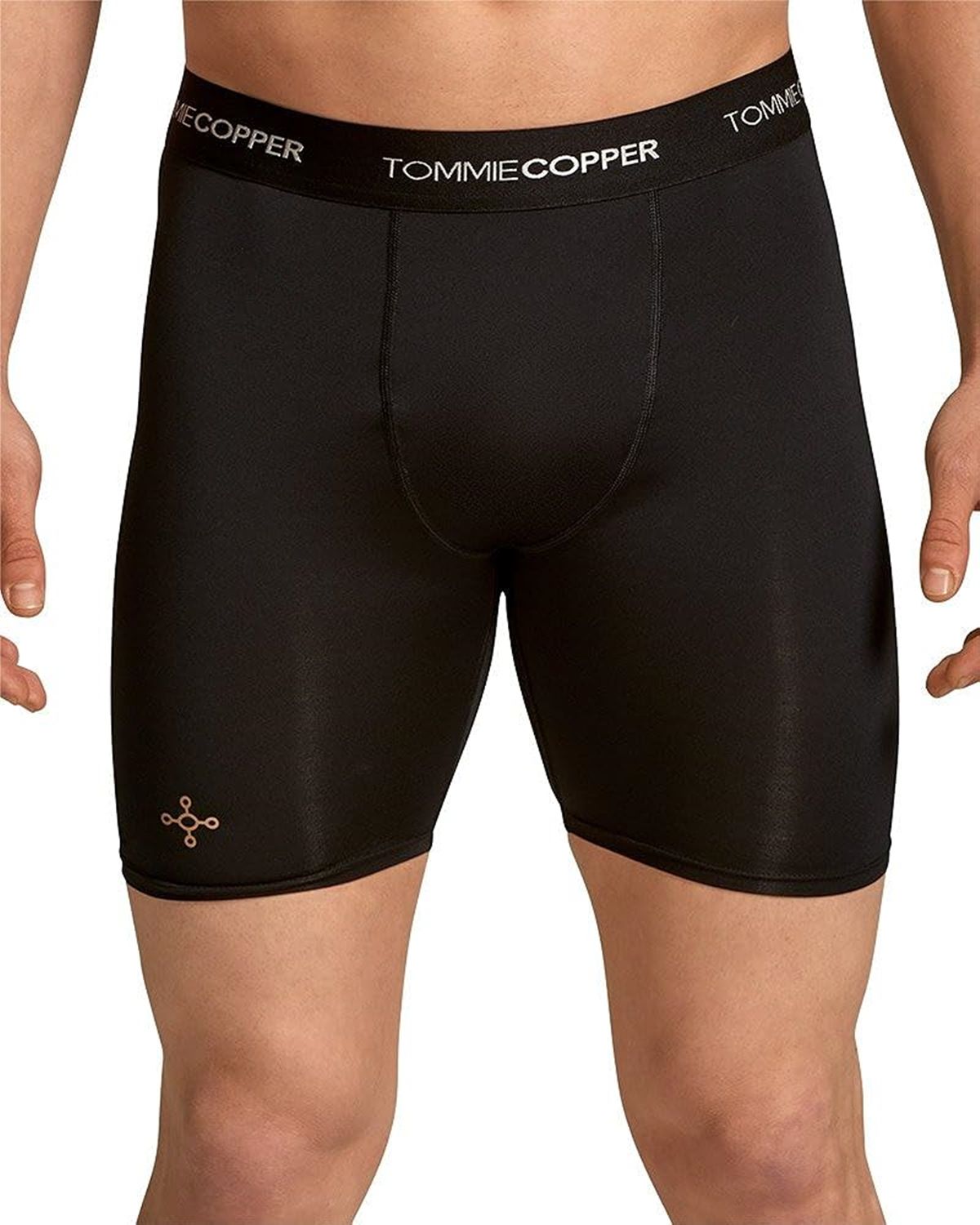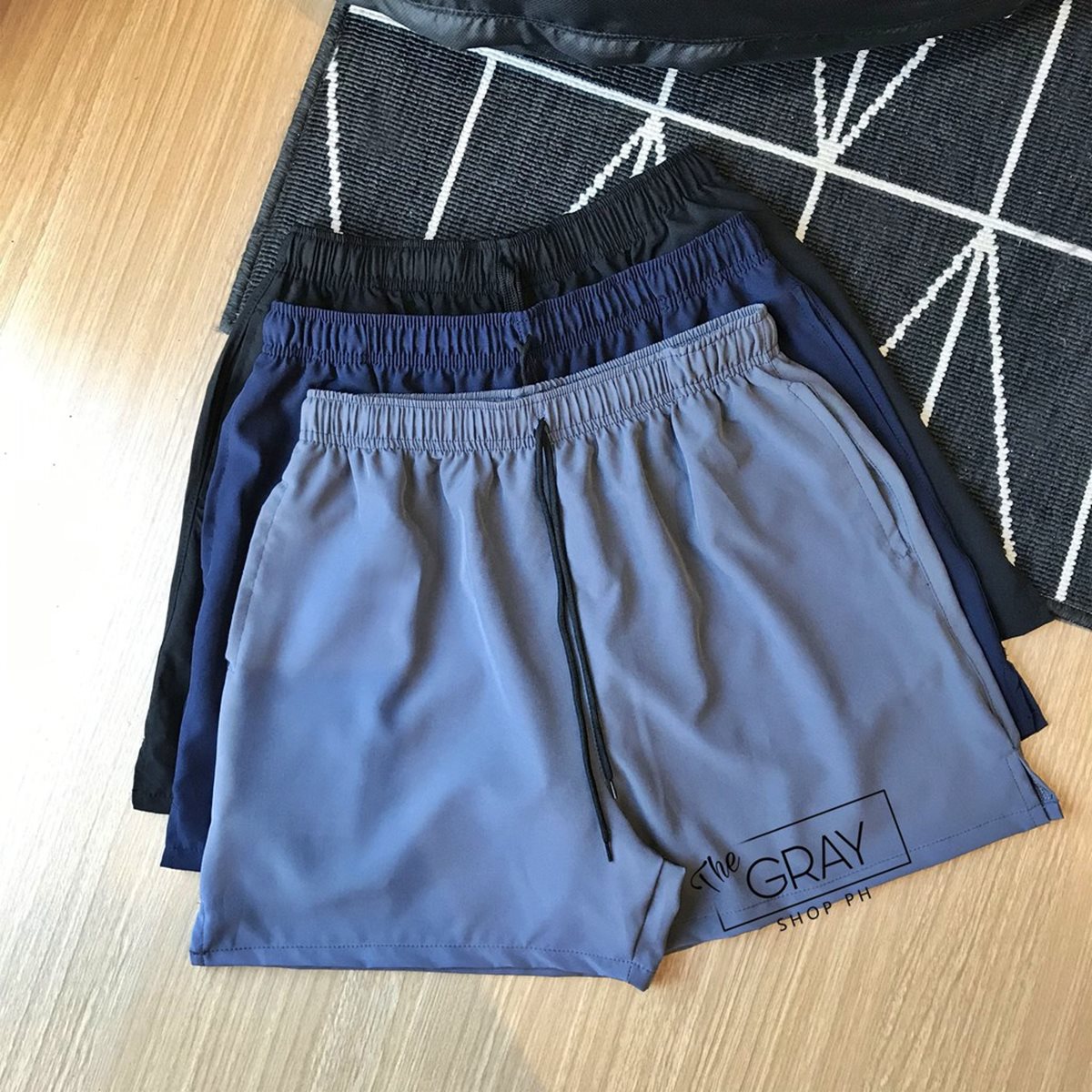

Featured
Why Does Pre-Workout Not Work For Me
Modified: January 2, 2024
Discover why pre-workout supplements may not be effective for you and learn how to find the right one that is featured to enhance your workouts.
Introduction
Pre-workout supplements have gained significant popularity in the fitness community for their ability to boost energy, enhance endurance, and improve focus during workouts. These supplements often come in the form of powder or capsules and are designed to provide a surge of energy and nutrients to support intense physical activity. While pre-workout supplements work well for many individuals, there are cases where they may not be as effective.
So, why does pre-workout not work for some people? The answer to this question can be attributed to a variety of factors, including individual differences in body composition, sensitivity to ingredients, and other lifestyle factors that can influence the effectiveness of these supplements.
In this article, we will explore the reasons why pre-workout may not be working for you despite its widespread usage and popularity. We will delve into various factors that can impact the effectiveness of pre-workout supplements and discuss potential solutions to help maximize the benefits of these products.
Understanding how pre-workout supplements work and the potential reasons behind their lack of effectiveness is crucial in order to make informed decisions about their usage and to optimize your workout routine.
Understanding Pre-Workout Supplements
Before diving into why pre-workout supplements may not work for everyone, let’s first understand what these supplements are and how they function.
Pre-workout supplements are specifically formulated to enhance performance and improve workout intensity. They typically contain a blend of ingredients such as caffeine, amino acids, vitamins, and minerals, all designed to provide an energy boost and support muscle function.
Caffeine is one of the key ingredients found in pre-workout supplements. It acts as a stimulant, helping to increase alertness, focus, and overall energy levels. Additionally, caffeine has been shown to improve endurance and reduce feelings of fatigue during exercise.
Amino acids, such as beta-alanine and citrulline malate, are commonly included in pre-workout formulas. Beta-alanine helps to buffer lactic acid build-up in muscles, delaying fatigue and supporting increased workout performance. Citrulline malate aids in improving blood flow, delivering more nutrients and oxygen to the muscles, which can enhance endurance and reduce muscle soreness.
Other ingredients often found in pre-workout supplements include creatine, which helps with muscle strength and power, and vitamins and minerals, which support overall health and well-being.
It’s important to note that pre-workout supplements are not magic potions that automatically guarantee incredible results. They are meant to supplement a well-rounded fitness routine that includes regular exercise, proper nutrition, and adequate rest.
Now that we have a basic understanding of what pre-workout supplements are and what they are designed to do, let’s explore the potential reasons for their lack of effectiveness in some individuals.
Factors that Affect the Effectiveness of Pre-Workout
While pre-workout supplements can be highly effective for many people, there are several factors that can influence their effectiveness. It’s important to consider these factors to understand why pre-workout may not be working optimally for some individuals.
1. Individual Body Composition: Everyone’s body is unique, and factors such as metabolism, body weight, and muscle mass can impact how the body responds to pre-workout supplements. Individuals with higher body weight or greater muscle mass may require higher doses of pre-workout to experience its full effects.
2. Ingredient Sensitivity: Some individuals may have specific sensitivities or intolerances to certain ingredients commonly found in pre-workout supplements. For example, caffeine sensitivity can vary greatly among individuals. If you are sensitive to caffeine, even small doses of it can cause jitters, restlessness, or other unwanted side effects.
3. Dosage and Timing: The effectiveness of pre-workout can also be influenced by the dosage and timing of its consumption. Taking too little or too much pre-workout, or consuming it too close to bedtime, can affect its potency. It’s important to follow the recommended dosage guidelines and consider timing to ensure optimal results.
4. Tolerance Build-Up: Over time, the body can develop tolerance to certain ingredients in pre-workout supplements, particularly those like caffeine. Regular and prolonged use of pre-workout can diminish its effectiveness, requiring individuals to take a break or switch to different products periodically.
5. Nutrition and Hydration: Pre-workout supplements are intended to enhance your workout, but they should not replace a well-balanced diet and adequate hydration. Without proper nutrition and hydration, the body may not have the energy and resources necessary to fully benefit from the effects of pre-workout supplements.
These are just a few of the factors that can influence how effectively pre-workout supplements work for individuals. It’s essential to consider these factors and make personalized adjustments to optimize the effectiveness of pre-workout supplements.
Possible Reasons Pre-Workout Is Not Working for You
If you’ve been consistently using pre-workout supplements but haven’t experienced the desired results, there could be several possible reasons for their lack of effectiveness. Let’s explore some common factors that may be contributing to this issue:
1. Lack of Proper Dosage or Timing: It’s important to follow the recommended dosage guidelines provided by the pre-workout supplement and consider the timing of its consumption. Taking too little or too much pre-workout, or consuming it too close to your workout, can impact its effectiveness.
2. Individual Sensitivity to Ingredients: You may have a specific sensitivity or intolerance to certain ingredients commonly found in pre-workout supplements. If you experience negative side effects such as jitters, restlessness, or digestive issues, it could indicate an ingredient that doesn’t agree with your body.
3. Building Tolerance to Pre-Workout: Over time, your body may develop a tolerance to specific ingredients, particularly stimulants like caffeine. If you’ve been using pre-workout for an extended period, it’s possible that your body has adapted, leading to diminished effects. Consider taking breaks from pre-workout or rotating different brands to avoid tolerance build-up.
4. Inadequate Nutrition or Hydration: Pre-workout supplements are designed to enhance your workout, but they shouldn’t replace a well-balanced diet and proper hydration. If you’re lacking essential nutrients or not drinking enough water, your body may not have the necessary resources to maximize the benefits of pre-workout.
5. Other Lifestyle Factors: Factors such as lack of sleep, high stress levels, or poor exercise technique can also impact the effectiveness of pre-workout. Addressing these lifestyle factors can help optimize your overall workout performance.
6. Individual Variations: Lastly, it’s important to acknowledge that every individual reacts differently to pre-workout supplements. What works for one person may not work for another due to variations in genetics, metabolism, and other physiological factors. It may be necessary to explore different brands or formulations to find one that is better suited for your needs.
If pre-workout is not working for you, it’s essential to assess these factors and make any necessary adjustments. Experiment with different dosages, timings, and brands to find what works best for your body. It may also be beneficial to consult with a healthcare professional or a registered dietitian who can provide personalized recommendations based on your specific needs.
Lack of Proper Dosage or Timing
One of the potential reasons why pre-workout supplements may not be working for you is the lack of proper dosage or timing. Both factors play a crucial role in determining the effectiveness of these supplements.
Dosage: The dosage of pre-workout is an important consideration. Taking too little may not provide the desired effects, while taking too much can lead to unwanted side effects. It’s crucial to follow the recommended dosage provided by the pre-workout supplement manufacturer. This information can usually be found on the product label or packaging. Be mindful that each brand may have a different recommended dosage, so it’s important to read and follow the instructions specific to the product you’re using.
If you’ve been using pre-workout for a while without experiencing the desired effects, it may be worth re-evaluating the dosage you’re taking. Consider increasing the dosage slightly to see if that makes a difference. However, it’s important to proceed with caution and not exceed the recommended maximum dosage. Adjust the dosage gradually and pay attention to any changes in how your body responds.
Timing: In addition to dosage, the timing of pre-workout consumption can significantly impact its effectiveness. Pre-workout supplements are designed to be taken before exercise to provide an energy boost and enhance performance during workouts.
Consuming pre-workout too close to your workout may not give your body enough time to absorb and utilize the nutrients effectively. On the other hand, taking it too early may result in diminished effects by the time you start your workout. Generally, it is recommended to take pre-workout approximately 30 minutes to an hour before starting your exercise session. This allows enough time for the ingredients to be absorbed and start working in your body.
Pay attention to how your body responds to pre-workout at different timing intervals. You may need to experiment with different timings to find the optimal window that works best for you. Keep in mind that individual variations exist, and what works for someone else may not work for you. By finding the right balance of dosage and timing, you can maximize the effectiveness of pre-workout supplements and enhance your overall workout experience.
Individual Sensitivity to Ingredients
Another potential reason why pre-workout supplements may not be working for you is individual sensitivity to ingredients. Every person is unique, and their bodies can react differently to various substances. In the case of pre-workout supplements, certain ingredients may not agree with your body, leading to a lack of desired effects or even adverse reactions.
One common ingredient found in many pre-workout supplements is caffeine. While caffeine can provide a boost of energy and improve focus during workouts, some individuals may be more sensitive to its effects. If you feel jittery, restless, or experience other uncomfortable symptoms after taking pre-workout containing caffeine, it may be an indication that you are sensitive to this ingredient.
In addition to caffeine, pre-workout supplements often contain other stimulants, amino acids, and vitamins. It’s possible to have individual sensitivities or intolerances to these ingredients as well. If you notice any adverse effects or discomfort after consuming pre-workout, it’s worth examining the ingredient list and considering whether any specific components could be causing the issue.
To determine if ingredient sensitivity is the reason pre-workout is not working for you, try eliminating one ingredient at a time and observing how your body responds. This can help identify any specific substances that may be causing the negative effects. Additionally, consulting with a healthcare professional or a registered dietitian may provide valuable insights into ingredient sensitivities or potential allergies.
Fortunately, there are pre-workout supplements available that are formulated with different ingredient profiles. If you discover that you are sensitive to certain ingredients, consider exploring alternative pre-workout options that exclude or have lower amounts of those ingredients. This will allow you to find a product that better aligns with your body’s needs and preferences.
Remember, individual sensitivity to ingredients is a personal matter, and what works for one person may not work for another. Take the time to understand your body’s response to pre-workout ingredients, and make informed decisions about the supplements you choose to incorporate into your fitness routine. By finding a pre-workout formula that aligns with your body’s sensitivities, you can optimize your workout performance and achieve better results.
Building Tolerance to Pre-Workout
Another factor that can contribute to pre-workout not working as effectively over time is the development of tolerance. This occurs when your body becomes accustomed to the ingredients in the pre-workout supplement, diminishing their impact and reducing the desired effects.
One of the primary culprits for tolerance buildup is caffeine, a common ingredient in many pre-workout supplements. Caffeine stimulates the central nervous system, increasing alertness and providing an energy boost. However, with regular and prolonged use, your body can adapt to the effects of caffeine, reducing its effectiveness over time.
If you’ve been consistently using the same pre-workout supplement for an extended period and notice that its effects are not as pronounced as they used to be, it may be an indication of tolerance buildup. When this happens, taking higher doses of the same supplement is not an effective solution, as it can lead to potential side effects and dependency.
To combat tolerance build-up, it’s important to implement strategies that help reset your body’s response to pre-workout supplements. Here are a few approaches you can try:
1. Cycling: Take breaks from using pre-workout supplements on a regular basis. This allows your body to reset and regain its sensitivity to the ingredients. Consider implementing a cycle of four to six weeks of pre-workout use and then taking a break for one to two weeks.
2. Ingredient Rotation: Switching to a different pre-workout supplement that contains alternative ingredients can be an effective approach. Look for products that have a different formulation or focus on ingredients that your body has not been exposed to for a while.
3. Lower Caffeine Options: If you suspect that caffeine is the primary culprit behind tolerance, consider switching to pre-workout supplements with lower caffeine content or try caffeine-free alternatives. This can help reduce the likelihood of caffeine tolerance while still providing other beneficial ingredients.
4. Reduce Overall Stimulant Intake: In addition to pre-workout supplements, take a closer look at your overall stimulant intake. Limiting the consumption of other caffeinated beverages or energy drinks can help reduce the overall load on your body and potentially mitigate tolerance development.
Remember, it’s essential to listen to your body and be mindful of its response to pre-workout supplements. Adjust the frequency and duration of use based on your tolerance levels and incorporate cycling or ingredient rotation strategies to maintain the effectiveness of pre-workout supplements in your fitness routine.
Inadequate Nutrition or Hydration
Inadequate nutrition or hydration can significantly impact the effectiveness of pre-workout supplements. While these supplements can provide an extra boost of energy and nutrients, they should not be relied upon as a substitute for proper nutrition and hydration in your overall diet and fitness routine.
When you consume pre-workout supplements, your body relies on the nutrients present in them to fuel your workouts and optimize performance. However, if you are lacking essential nutrients in your diet, the pre-workout supplement may not be able to fulfill its intended purpose effectively.
Nutrition plays a vital role in supporting your overall energy levels and workout performance. Ensure that your diet is well-balanced, providing an adequate intake of carbohydrates, proteins, and healthy fats. Carbohydrates provide the necessary fuel for your muscles, proteins aid in muscle repair and growth, and healthy fats help with hormone production and energy utilization.
In addition to proper nutrition, hydration is equally important. Dehydration can negatively affect your workout performance, leaving you feeling fatigued, weak, and unable to push yourself to your full potential. Lack of hydration can also hinder the absorption and distribution of nutrients from pre-workout supplements.
Make sure to drink enough water throughout the day, both before and after your workouts. The amount of water you need may vary depending on factors such as exercise intensity, climate, and individual sweat rates. Staying adequately hydrated will help ensure that your body is primed for optimal performance and that the pre-workout supplements can work effectively.
If you find that pre-workout supplements are not delivering the desired results, take a closer look at your overall nutrition and hydration habits. Consider consulting with a registered dietitian who can assess your dietary intake and make personalized recommendations to improve your nutrition and hydration for better workout performance.
Remember, pre-workout supplements are designed to complement a healthy lifestyle, including a well-rounded diet and hydration practices. When used in conjunction with proper nutrition and hydration, pre-workout supplements can provide the extra boost you need to elevate your workouts and achieve your fitness goals.
Other Contributing Factors to Consider
While we have explored several common reasons why pre-workout supplements may not be working effectively, there are other factors that can contribute to this issue as well. It’s important to consider these factors to gain a comprehensive understanding of why pre-workout may not be delivering the desired results.
1. Sleep Quality and Quantity: The quality and quantity of your sleep can significantly impact your energy levels, focus, and overall workout performance. Lack of adequate sleep can leave you feeling fatigued, making it harder for pre-workout supplements to provide the desired energy boost. Prioritize getting enough high-quality sleep to support the effectiveness of pre-workout supplements.
2. Stress Levels: High levels of stress can affect your body’s ability to perform at its best. Chronic stress can lead to fatigue, decreased motivation, and reduced workout performance. Managing stress through relaxation techniques, mindfulness practices, and adequate self-care can help improve the effectiveness of pre-workout supplements.
3. Exercise Routine and Intensity: It’s important to ensure that your exercise routine aligns with your goals and is balanced in terms of cardiovascular exercise, strength training, and flexibility work. Additionally, the intensity of your workouts can impact how effective pre-workout supplements are. If you’re consistently performing low-intensity workouts, you may not experience the full benefits of these supplements intended for high-intensity exercise.
4. Overall Health and Medication Use: Certain health conditions and medications can affect your body’s response to pre-workout supplements. It’s important to consider any pre-existing health conditions or medications you may be taking. Consult with a healthcare professional who can provide guidance on the compatibility of pre-workout supplements with any existing health concerns or medications.
5. Psychological Factors: Your mental state, motivation, and mindset during workouts can influence the effectiveness of pre-workout supplements. If you’re not fully engaged mentally or feeling motivated, pre-workout supplements may not be as effective in providing the desired energy or focus. Consider incorporating strategies such as goal setting, visualization, or music to enhance your mental state during workouts.
By considering these additional factors, you can gain a deeper understanding of why pre-workout supplements may not be working optimally for you. Taking a holistic approach to your fitness routine and addressing any underlying issues or imbalances will help maximize the effectiveness of pre-workout supplements and enhance your overall workout experience.
Exploring Alternative Pre-Workout Options
If pre-workout supplements are not working effectively for you despite considering various factors, it may be worth exploring alternative options. There are several alternatives available that can provide similar benefits and help optimize your workout performance. Here are a few options to consider:
1. Natural Pre-Workout Ingredients: If you’re sensitive to certain ingredients commonly found in pre-workout supplements or prefer a more natural approach, you can explore pre-workout options that utilize natural ingredients. Look for supplements that use ingredients like beetroot powder, green tea extract, or natural sources of caffeine, such as green coffee bean extract.
2. Homemade Pre-Workout Recipes: Another option is to create your own pre-workout blend using individual ingredients. This allows you to customize the ingredients and their quantities based on your preferences and tolerances. Common ingredients to consider include caffeine, creatine, beta-alanine, and citrulline malate. Experiment with different combinations to find the blend that suits your needs.
3. Nitric Oxide Boosters: Nitric oxide boosters, such as arginine, citrulline, or beetroot extract, focus on increasing blood flow and improving nutrient and oxygen delivery to the muscles. They can enhance endurance, pump, and overall performance during workouts.
4. Natural Energy Boosters: If your main goal is to increase energy levels without relying on pre-workout supplements, you can explore natural energy-boosting options like consuming foods rich in complex carbohydrates or healthy fats prior to your workouts. Foods like bananas, oats, or nuts can provide sustained energy release without the need for supplements.
5. Post-Workout Nutrition: Instead of relying solely on pre-workout supplements, focus on optimizing your post-workout nutrition. Consuming a balanced meal or snack that includes a combination of proteins and carbohydrates within the post-workout window can help replenish energy stores and support muscle recovery.
Remember, the effectiveness of alternative pre-workout options may vary depending on your individual needs and preferences. It’s important to experiment and find the approach that works best for you. Consider consulting with a registered dietitian or fitness professional who can provide personalized recommendations based on your unique circumstances.
Stay open-minded and willing to try different approaches to find what works best for your body. Each individual is unique, and what may work for others may not work for you. By exploring alternative pre-workout options, you can optimize your workout performance and achieve better results.
Conclusion
Pre-workout supplements can be a valuable tool in enhancing energy, focus, and performance during workouts. However, they may not work equally well for everyone. Understanding the potential reasons why pre-workout may not be working effectively can help you make informed decisions and optimize your overall fitness routine.
We explored various factors that can contribute to the lack of effectiveness of pre-workout supplements, including dosage and timing, individual sensitivity to ingredients, tolerance build-up, inadequate nutrition or hydration, and other lifestyle factors. By considering these factors and making necessary adjustments, you can maximize the benefits of pre-workout supplements and improve your workout experience.
It’s important to remember that pre-workout supplements should be viewed as a supplement to a healthy lifestyle that includes proper nutrition, hydration, sleep, and stress management. They should not replace a well-balanced diet or be relied upon as a sole source of energy.
If pre-workout supplements are not delivering the desired results, consider exploring alternative options such as natural pre-workout ingredients, homemade pre-workout blends, nitric oxide boosters, natural energy boosters, or emphasizing post-workout nutrition. Each individual is unique, and finding the approach that works best for your body may require some experimentation.
Lastly, it’s important to consult with a healthcare professional or a registered dietitian who can provide personalized recommendations based on your specific needs and circumstances. They can help you navigate ingredient sensitivities, dosages, timing, and other factors to optimize the effectiveness of pre-workout supplements for your fitness routine.
Remember, achieving your fitness goals is a journey that requires patience, consistency, and adapting to what works best for you. By considering the factors discussed in this article and exploring alternative options, you can maximize the benefits of pre-workout supplements and enhance your overall workout performance.






